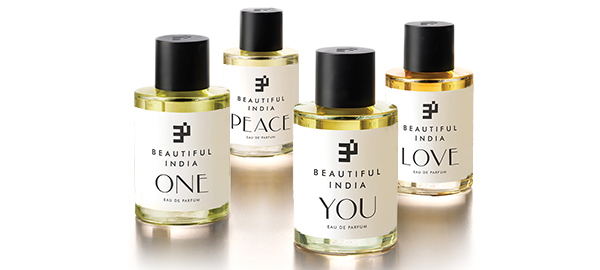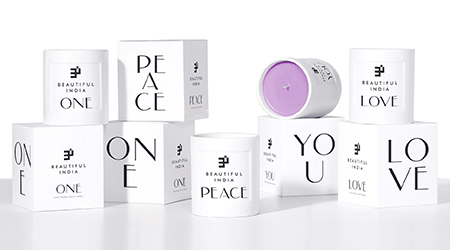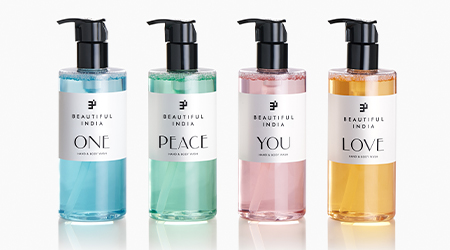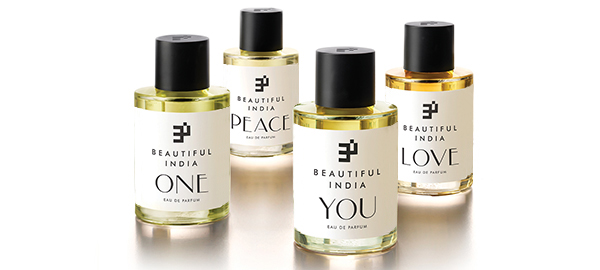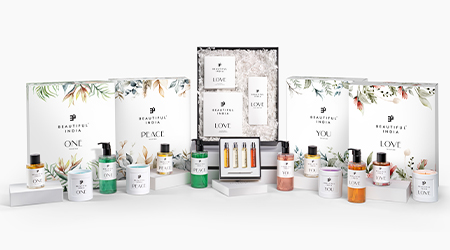SCENT ESSENTIALS
What does the word ‘perfume’ mean?
While it’s the French who dominate the more recent history of perfume, the name has come from the Romans, who burnt a mixture of flowers, bark and aromatic spices as an offering to the Gods. The Latin word “perfumare” means to “smoke through” i.e., scent the air with incense. The French shortened it to “parfum”. However, the practice of using perfume dates back over 4000 years to the Mesopotamian civilization, and shows up in the Chinese, Greek and Persian chronicles.
What are the elements that make up a perfume?
Any perfume has two predominant elements – the fragrance oil and the solvent, in which these oils are dissolved. The solvent is usually either alcohol or water.
What is the difference between parfum, eau de parfum, eau de toilette, aftershave and cologne?
The primary difference between these products is the concentration of the fragrance oil in it. The higher the concentration, the stronger the fragrance and the higher its price. Parfum usually contains 20-40% fragrance oil, the EDP contains 15-20% fragrance oil, EDT concentration is 5-15%, and both cologne and aftershave are the lightest at 2-4% fragrance oil.
What are fragrance oils?
Fragrance oils are a complex blend of extracts and essences that form the fragrance of the perfume. They can be of two kinds. Natural fragrance oils extracted from fruits, flowers, barks, blossoms, leaves, twigs, resins, bulbs, roots, seeds and wood. Many fragrances can neither be extracted from their source due to conservation and fears of species extinction, for example, musk, or are difficult to extract like Lily of the Valley and Violet. This is why these and many other fragrance oils are synthesized. Synthesized oils are far stabler, more environmentally friendly and can be blended much more easily with multiple notes to create a far more refined palette of fragrances.
What is a fragrance note?
A note is a single individual element in the complex composition that makes up a perfume. Lemon, or sandalwood, for example is a note. Many such notes come together, in varying concentrations and strengths, to produce a harmony, which is the final aroma.
What are top, heart and base notes?
What you smell as soon as you spray perfume on your skin, are the top notes. They are generally light, citrusy, herbal and fruity. They are followed by the middle or heart notes which are floral and become apparent around 15 minutes after application. And these are followed finally by the base or fond notes, which make up the intensity and staying power of a perfume. The range of base notes is much more limited than the top and middle notes, and usually include vanilla, oak moss, musk, sandalwood and patchouli.
What are the four primary fragrance classifications?
- Oriental: spicy, woody, rich and sweet, this family is associated with wafts of nutmeg, vanilla, cinnamon, patchouli, amber, musk, sandalwood and anise.
- Woody: These dry, rich, mossy forest fragrances include cedar, leather, oakmoss, fir, pine, camphor, and sandalwood.
- Fresh: Crisp, light and herby, these scents include lemon, sage, lavender, basil, lemongrass, grapefruit, rosemary, mandarin, mint, and other herbs and citruses.
- Floral: From delicate and powdery to fruity and spicy, these scents range mirror jasmine, rose, peach, lily, peony, orange blossom, ylang ylang, geranium and other florals.
Which fragrances last longer?
Perfume tends to cling to oil, and usually last longer on skin that is oily rather than dry. Try moisturizing your skin with lotion before spraying perfume, to maximize its staying power.
Perfumes with deep base notes like wood, resins, leather tobacco etc last longer. The oriental family of notes is stronger than the floral.
How to make your favorite perfume last longer and work harder?
Most perfumes can last from four to six hours, depending on the ingredients. The top or head notes last 5 to 15 minutes, the middle notes last 2 to 4 hours, and the base notes last from 4 to 6 hours. Dryness in the air, or even the skin it's applied to, can reduce the staying power of a perfume. Some people find that perfume ends up smelling mild or even different on them. Research has been ongoing to explore why this happens to some perfume users, but the most obvious answers range from the dry skin to the hormone levels in the body, perhaps even genetics.
Until we get answers from the research studies, let’s look at a few tips and tricks on how to maximize the effect of your favorite fragrance.
Moisturize your skin before using perfume. This gives the oils in the perfume something to cling to and will increase its staying power. Build up your favorite fragrance by layering it on your skin. Use the entire range of body products with the same fragrance from bath wash, to body lotion and finally the perfume.
What is layering?
Spraying multiple perfumes on top of each other, preferably from the same family, is a technique some people use to create their own bespoke fragrance. You can experiment within the same fragrance family or even get bolder and mix and match. It’s trial and error, but the fantastic thing is that you can literally create a new fragrance each time you layer.
Why do perfumes smell different on different people?
Perfume is nothing but chemistry and the chemistry of your body can change or vary due to many factors, such as hormone levels, medications, diet and mood. When you’re under pressure, your body chemistry is different from what it is when you’re happy. Naturally then, when your basic body chemistry varies from that of another person, or even your own at different times, the perfume you apply can react differently with your body chemistry each time you apply it. Totally differently from how it reacts with the body chemistry of your friend or your partner.
How do I select the right fragrance for myself?
Start by familiarizing the four main fragrance families, then see which one you resonate with the most. When you know that, look for perfumes that are created around your favorite fragrance family.
What does a perfumer do exactly?
A perfumer is like a maestro in an orchestra, bringing together various sounds and instruments in the most harmonious way to create a melody that is unique, memorable and evocative. A master perfumer has to skillfully combine individual fragrance notes and just the right amount, to create a distinct, rousing and harmonious fragrance. Creating a good perfume is almost like creating a great wine. It is a craft that needs skill, expertise, experience as well as very sensitive olfactory responses.
How should I wear perfume?
There are many ways to wear your perfume. The subtle way is to spray it in the air and walk into the fragrant cloud, allowing it to settle all over rather than in specific points on your body. Another technique is to spritz or dab your pulse points -behind the ears, temples, the nape of your neck, wrists, elbows, back of your knees and the belly button area. These points work well as the fragrance oils get warmed up by the veins and arteries that run close to the skin. Maybe do the cloud walk for day wear and pulse points for night wear.
How does buying a perfume online, without actually smelling it, work?
Like ordering anything else online, once you know what works for you and what doesn’t, it becomes very easy to pick something you know you will like. The trick is to get familiar with the fragrance families and individual notes, especially in your favorite perfumes. Then look for those notes and combinations when you’re exploring new perfumes. Many fragrance houses offer Discovery Sets with little sample vials that you can try before choosing the fragrance that you like the best. We all have a scent print – a natural odor that stems from our specific body chemistry, and the perfume that best compliments it, is the one we tend to resonate with.
What are gender-neutral fragrances?
Fragrances today keep pace with the mindset of the users. The more evolved ones do not carry the stereotypical floral sweet feminine or earthy musky male labels. They are created as a harmonious mix of elements and notes to appeal to all users, no matter how they identify themselves. Rather than choose a fragrance based on gender, it makes way more sense to make a choice based on your skin type, climate, season, occasion, allergies if any etc.
Can perfume really affect my mood?
Absolutely. The science of aromachology explains how aromas affect your emotions and behavior. And even that of people around you. Which is why it is a good idea to invest in a range of different notes that sync with different moods. Mint and bergamot notes to lift you up, lavender to ease stress, amber to kindle romance, ylang ylang to make you feel adventurous.
Why can my nose not pick up my own perfume after a while?
After wearing a perfume for around 30 minutes, your nose gets desensitized to your own perfume. But others around you can smell it.

 France (en)
France (en)
 India
India
 Italy
Italy
 Japan
Japan
 United States
United States





